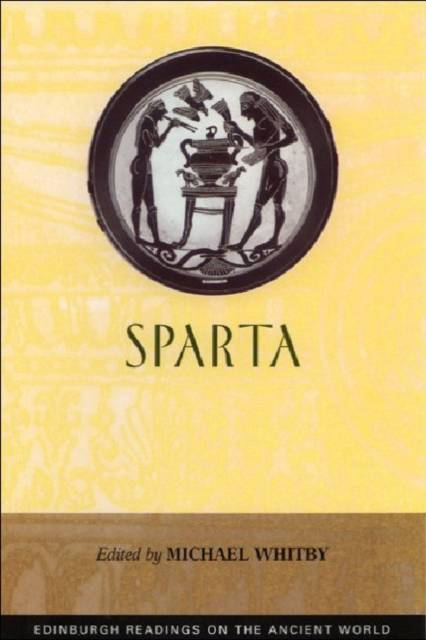
- Afhalen na 1 uur in een winkel met voorraad
- Gratis thuislevering in België vanaf € 30
- Ruim aanbod met 7 miljoen producten
- Afhalen na 1 uur in een winkel met voorraad
- Gratis thuislevering in België vanaf € 30
- Ruim aanbod met 7 miljoen producten
Zoeken
€ 200,45
+ 400 punten
Omschrijving
This volume introduces the reader to every important aspect of the society of Sparta, the dominant power in southern Greece from the seventh century BC and the great rival of democratic Athens in the fifth and fourth centuries. During this period Sparta evolved a unique social and political system that combined egalitarian structures, military ideals and brutal oppression, and permitted male citizens to focus on the practice of war. The system fascinated scholars at the time and has done so ever since: its outlines are clear, but because of the nature of the evidence almost all detailed aspects of Spartan social practices and constitutional affairs are open to debate. Michael Whitby introduces and presents some of the most outstanding contributions to the history of Sparta. Together they cover the key aspects of Spartan history and society: its problematic early history, social and economic organisation (especially the different categories of citizens and non-citizens), international relations and military achievements, religious practices and culture, the role of women, and sexual conduct and values. He has chosen them partly for their clarity and importance, and partly too for the questions they raise about the problems of studying Sparta - what evidence to consider, what precautions need to be observed in considering it, and what sorts of conclusions it is reasonable to draw. His intention is not to pretend that definitive answers can be offered to the main problems of Sparta but to encourage readers to formulate their own approaches and judgements with due respect for the limitations of the evidence and awareness of the benefits of informed speculation.
Specificaties
Betrokkenen
- Auteur(s):
- Uitgeverij:
Inhoud
- Aantal bladzijden:
- 276
- Taal:
- Engels
- Reeks:
Eigenschappen
- Productcode (EAN):
- 9780748612949
- Verschijningsdatum:
- 25/10/2001
- Uitvoering:
- Hardcover
- Formaat:
- Genaaid
- Afmetingen:
- 156 mm x 234 mm
- Gewicht:
- 566 g

Alleen bij Standaard Boekhandel
+ 400 punten op je klantenkaart van Standaard Boekhandel
Beoordelingen
We publiceren alleen reviews die voldoen aan de voorwaarden voor reviews. Bekijk onze voorwaarden voor reviews.











